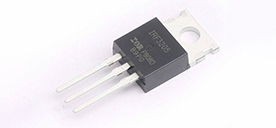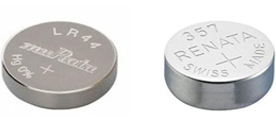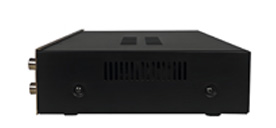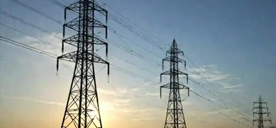Comparison of the advantages and disadvantages of inverter power frequency and high frequency
2024/5/15 11:10:30
Views:
Advantages, Disadvantages and Applications of Power Frequency Inverters
Definition and Basic Characteristics of Power Frequency Inverters
The operating frequency of power frequency inverters is close to the power frequency of the power system (usually 50Hz or 60Hz). Its design and manufacturing are relatively simple, so the cost is low. Power frequency inverters perform well in stability and reliability, and are particularly suitable for occasions with high requirements for power quality, such as medical equipment and data centers.
Main advantages of power frequency inverters
1. Superior stability: The circuit structure of the power frequency inverter is relatively simple, and it is easy to achieve stable output. Its low-frequency circuit is less sensitive to external interference, so it can still maintain high stability in harsh environments.
2. High reliability: The power frequency inverter has a small number of components, low operating voltage and low failure rate. Excellent heat dissipation performance helps to extend the service life of the equipment.
3. Low cost: Due to the low difficulty of design and manufacturing, the production cost of the power frequency inverter is low, which is suitable for large-scale applications.
Disadvantages of power frequency inverters
1. Large size and weight: The low operating frequency makes the power frequency inverter relatively large in size and weight, which is not conducive to the integration and lightweight of the equipment.
2. Low conversion efficiency: Low conversion efficiency leads to more energy loss.
Advantages and challenges of high-frequency inverters
Basic characteristics of high-frequency inverters
The operating frequency of high-frequency inverters has been significantly improved, usually reaching several thousand hertz or even higher. The high-frequency design makes high-frequency inverters superior in terms of volume, weight and conversion efficiency, and is suitable for space-constrained application scenarios.
Main advantages of high-frequency inverters
1. Small size and light weight: High-frequency design reduces the size of components, realizes the miniaturization and lightweight of inverters, and is suitable for electric vehicles, aerospace and other fields.
2. High conversion efficiency: High operating frequency reduces switching losses in the circuit, improves overall conversion efficiency, reduces energy loss, and reduces equipment heat dissipation requirements.
3. Fast response speed: High-frequency inverters can respond quickly to load changes and provide stable output voltage and current. They are frequently utilized in UPS power supplies, charging stations for electric vehicles, and other industries.
Challenges of high-frequency inverters
1. Electromagnetic interference: The electromagnetic interference problem caused by high frequency needs to be effectively solved to ensure the stability and safety of the equipment.
2. High difficulty in design and manufacturing: High-frequency inverters have high requirements on component performance and manufacturing process, and the cost is relatively high.
Recommendations for inverter selection
When choosing an inverter, both industrial frequency and high frequency have their own advantages and disadvantages, and they need to be weighed according to specific application scenarios and needs:
1. Occasions with high power quality requirements: such as medical equipment, data centers, etc., the stability and reliability of industrial frequency inverters are more advantageous.
2. Occasions with limited space and lightweight requirements: such as electric vehicles, aerospace, etc., the miniaturization and lightweight characteristics of high-frequency inverters are more advantageous.
3. Occasions with energy efficiency and environmental protection requirements: The high conversion efficiency of high-frequency inverters reduces energy loss and is more environmentally friendly.
4. Cost-sensitive occasions: Industrial frequency inverters are lower in cost and more competitive.
In conclusion, there are distinct benefits and features for both industrial frequency and high-frequency inverters. A thorough trade-off should be performed when selecting an inverter based on the demands and particular application circumstances. With the advancement of science and technology, the performance of inverters will continue to improve, providing more efficient and reliable power solutions for various fields.
Definition and Basic Characteristics of Power Frequency Inverters
The operating frequency of power frequency inverters is close to the power frequency of the power system (usually 50Hz or 60Hz). Its design and manufacturing are relatively simple, so the cost is low. Power frequency inverters perform well in stability and reliability, and are particularly suitable for occasions with high requirements for power quality, such as medical equipment and data centers.
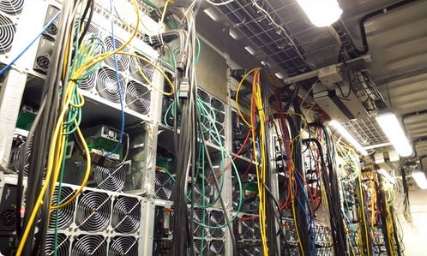
Main advantages of power frequency inverters
1. Superior stability: The circuit structure of the power frequency inverter is relatively simple, and it is easy to achieve stable output. Its low-frequency circuit is less sensitive to external interference, so it can still maintain high stability in harsh environments.
2. High reliability: The power frequency inverter has a small number of components, low operating voltage and low failure rate. Excellent heat dissipation performance helps to extend the service life of the equipment.
3. Low cost: Due to the low difficulty of design and manufacturing, the production cost of the power frequency inverter is low, which is suitable for large-scale applications.
Disadvantages of power frequency inverters
1. Large size and weight: The low operating frequency makes the power frequency inverter relatively large in size and weight, which is not conducive to the integration and lightweight of the equipment.
2. Low conversion efficiency: Low conversion efficiency leads to more energy loss.
Advantages and challenges of high-frequency inverters
Basic characteristics of high-frequency inverters
The operating frequency of high-frequency inverters has been significantly improved, usually reaching several thousand hertz or even higher. The high-frequency design makes high-frequency inverters superior in terms of volume, weight and conversion efficiency, and is suitable for space-constrained application scenarios.
Main advantages of high-frequency inverters
1. Small size and light weight: High-frequency design reduces the size of components, realizes the miniaturization and lightweight of inverters, and is suitable for electric vehicles, aerospace and other fields.
2. High conversion efficiency: High operating frequency reduces switching losses in the circuit, improves overall conversion efficiency, reduces energy loss, and reduces equipment heat dissipation requirements.
3. Fast response speed: High-frequency inverters can respond quickly to load changes and provide stable output voltage and current. They are frequently utilized in UPS power supplies, charging stations for electric vehicles, and other industries.
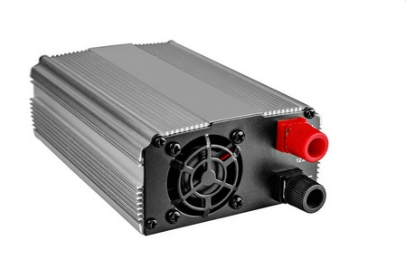
Challenges of high-frequency inverters
1. Electromagnetic interference: The electromagnetic interference problem caused by high frequency needs to be effectively solved to ensure the stability and safety of the equipment.
2. High difficulty in design and manufacturing: High-frequency inverters have high requirements on component performance and manufacturing process, and the cost is relatively high.
Recommendations for inverter selection
When choosing an inverter, both industrial frequency and high frequency have their own advantages and disadvantages, and they need to be weighed according to specific application scenarios and needs:
1. Occasions with high power quality requirements: such as medical equipment, data centers, etc., the stability and reliability of industrial frequency inverters are more advantageous.
2. Occasions with limited space and lightweight requirements: such as electric vehicles, aerospace, etc., the miniaturization and lightweight characteristics of high-frequency inverters are more advantageous.
3. Occasions with energy efficiency and environmental protection requirements: The high conversion efficiency of high-frequency inverters reduces energy loss and is more environmentally friendly.
4. Cost-sensitive occasions: Industrial frequency inverters are lower in cost and more competitive.
In conclusion, there are distinct benefits and features for both industrial frequency and high-frequency inverters. A thorough trade-off should be performed when selecting an inverter based on the demands and particular application circumstances. With the advancement of science and technology, the performance of inverters will continue to improve, providing more efficient and reliable power solutions for various fields.
Related Information
-
-
Phone
+86 135 3401 3447 -
Whatsapp

